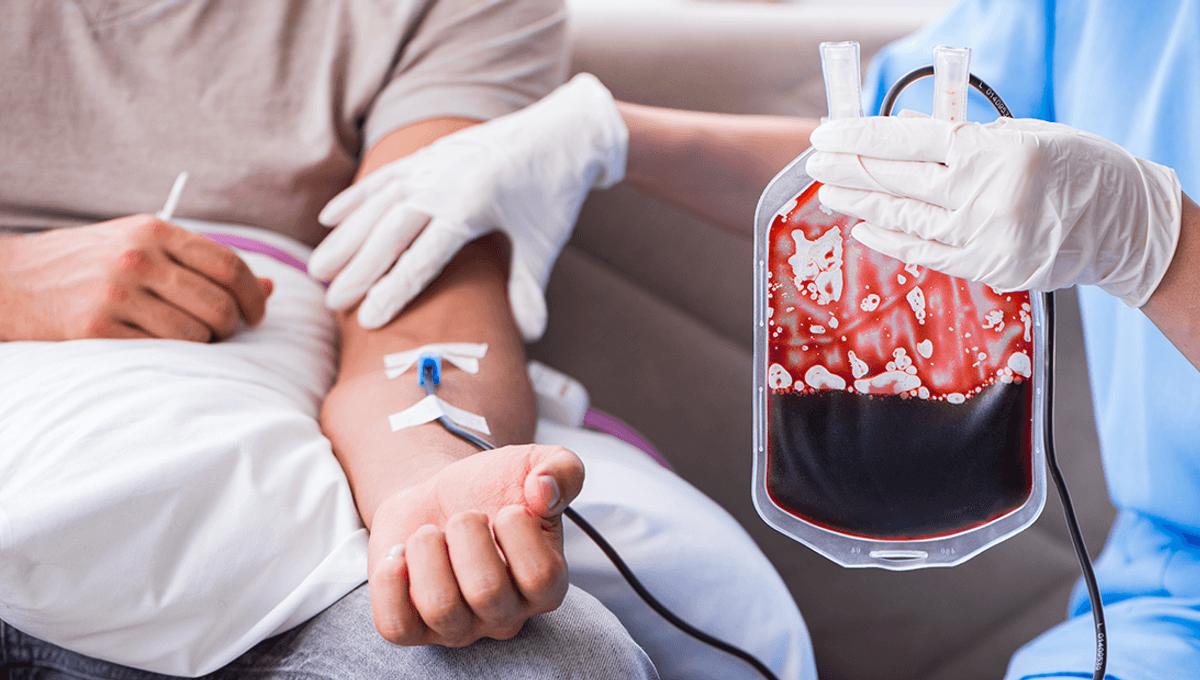
A recent tweet by author JK Rowling, suggesting that receiving transfusions of blood from donors of the opposite sex leads to poorer outcomes (and higher numbers of fatalities), has been met with criticism by several scientists and members of the medical community.
“It was recently discovered that those given transfusions of blood from the opposite sex had poorer outcomes, including fatalities,” she tweeted, adding that she had “stumbled across this fact” while researching her latest detective book.
Focusing their attention on problems with the research itself, scientists and science communicators said that the claims in the key points of the study were not backed up by the evidence.
The study itself notes that “the findings of the current study are contrary to other studies suggesting that female recipients of male blood have an increased risk of in-hospital mortality and studies that do not suggest an association between donor sex and patient survival”, adding that “it is challenging to explain the inconsistency between studies investigating the effect of donor sex on recipient outcomes”.
The study, as well as being small, focused on blood transfusions given to patients at two centers in the Netherlands, and patients in ICU.
“Another potential limitation of the current study is related to generalizability. Many patients receiving blood from both sexes needed to be excluded in order to study the impact of donor sex,” the team writes. “Also, it was a study in only 2 centers in the Netherlands. Future studies to validate these findings in other sites and countries are therefore recommended.”
In a response to the study, Dr Henry Wood of the University of Leeds School of Medicine, and hematology consultant at the Queen Elizabeth Hospital Birmingham Dr Suzy Morton, wrote that the conclusions drawn by the authors were “not well supported by the evidence presented and should not be used to guide patient care”.
The two note a number of problems, from acknowledging that male patients have higher mortality in ICU but not including this in their analysis, to choosing female-to-female donor-recipients to be the reference group because they had the best outcomes.
“Choosing the reference group after the analysis is not methodologically sound and it is not surprising that an association has been found in 1 of the 6 possible pairs,” the pair write. “In the context of these limitations, the quoted odds ratio of 2.43 for increased ICU mortality in male vs female recipients of female donor [red blood cells] is misleading.”
They note that the largest studies of 93,726 recipients, and 968,264 recipients, “showed no association between survival and donor sex”, adding that “the absence of association between mortality and donor/recipient sex was confirmed in an analysis of 3 large cohorts in Scandinavia and the United States totaling 1,047,382 patients”.
Blood is selected by doctors for a number of characteristics, including, of course, blood type. Sometimes it is preferable for health professionals to use blood from male patients.
“We’re incredibly grateful to all our female donors, who are vital in providing life-saving blood to those in need. But we need men to catch up with recent recruitment because their blood can have different characteristics which can make it important in certain situations,” UK blood donation director Mike Stredder said in an appeal for blood from males in 2019, which explained that blood from males can contain fewer antibodies against red and white blood cells, meaning that it is better suited for extracting platelets for treating cancer patients.
“It’s more likely that we can use men’s blood to stop bleeding after injury or surgery,” Stredder added.
If you are pregnant, meanwhile, you can produce new antibodies in response to fetal blood, making it harder to match your blood to recipients. A study looking at more than 1 million transfusions, however, found that the pregnancy history of red cell blood donors had no effect on recipient mortality,
All “explainer” articles are confirmed by fact checkers to be correct at time of publishing. Text, images, and links may be edited, removed, or added to at a later date to keep information current.
The content of this article is not intended to be a substitute for professional medical advice, diagnosis, or treatment. Always seek the advice of qualified health providers with questions you may have regarding medical conditions.
Source Link: When You Get A Blood Transfusion, Does It Matter What Sex The Donor Is?